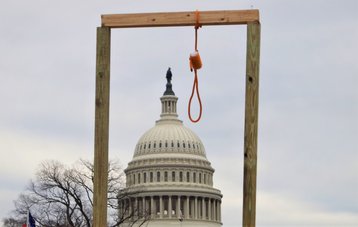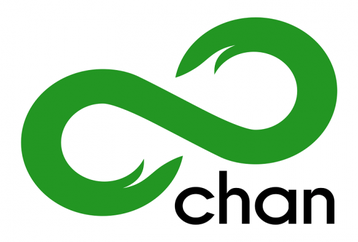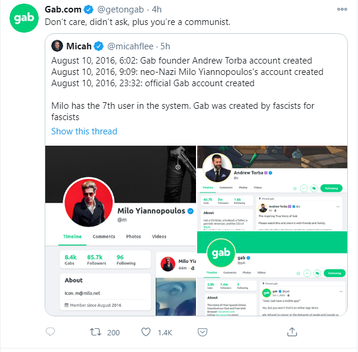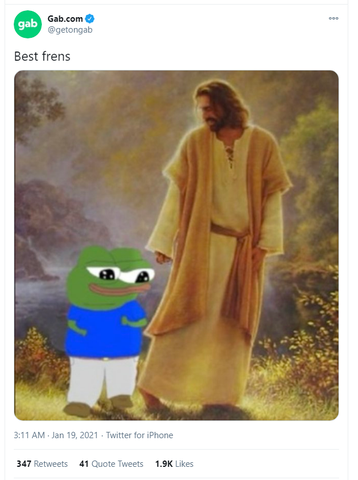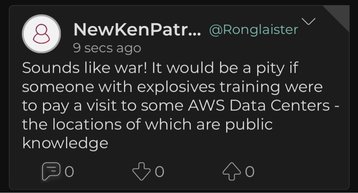We’re spiraling. US democracy is at one of its weakest points, hate attacks are on the rise, and terrorists were able to break into the Capitol building.
The roots of this growing crisis are deep, building upon decades of racial and social injustice, declining education levels, and a weakened media incapable of speaking to a nation’s ills.
Those that stormed the Capitol, braying nationalist chants while smashing windows, skulls, and democratic ideals, did so in the name of a false reality. They did so because a world was built for them and by them, one of mad conspiracies and breathtaking contempt for those that form their immigrant nation.
This world began in the Internet, which focused on bringing people together, without considering what that meant when those groups include bad actors, racist belief systems, and angry children. It’s a world that appeals to the darkest corners of the psyche, and it’s one that was built online.
Now, as we recover from a deep shock and brace for what is still to come, there has been a reckoning.
Facebook and Twitter have removed thousands of extremists, providers like OVH dropped Boogaloo sites, and Amazon Web Services stopped hosting right wing social media platform Parler, leading to threats against AWS data centers. Donald Trump was removed from Twitter.
For some, this "deplatforming" is a success, following months and years of trying to clean up the net: they point to an immediate reduction in misinformation and death threats. For others, this is censorship, and proof that a handful of unelected and unaccountable tech giants are able to set the tone for the nation and the world.
But few have actually experienced what it is like to have Internet giants turn against you. Fewer still have explored just how dark some corners of the Internet can get.
A world without rules
Fredrick Brennan discovered a new home when he was 12. Struggling with "brittle bone disease" (osteogenesis imperfecta), a genetic disorder that confined him to a wheelchair, he was unable to partake in the extracurricular activities of his peers, and the Internet opened for him a gateway to another world.
In 4chan, he found a place where he was free to be himself, sharing ideas, memes, and heaps of shitposting.
An anonymous imageboard, 4chan has no registration, but still had too many rules. After five years on 4chan, Brennan was growing frustrated with the increasing attempts by founder Christopher “moot” Pool to moderate the site.
In a burst of creativity fueled by a batch of shrooms, Brennan began to build his own website. At least in theory, 8chan was free from constraints. Moderation was to be light, with communities able to control their own boards and ideally police their own areas of the site (somewhat akin to Reddit). The only nominal limit was that users weren’t meant to post stuff that broke US laws.
"It was hosted in essentially the cheapest way possible," Brennan said, with the early site hosted by RamNode. "It was literally, I believe, their cheapest plan, I think $5 a month, because I didn't have very much money. And that was enough to support our incredibly tiny user base."
Then came Gamergate, and everything changed. An online conspiracy that led to death threats against journalists, Gamergate has served as a precursor for the forever culture war we're locked in today, in which a fervent white male-dominated collective are able to weave complex narratives to explain how they are the real victim.
Gamergate devotees flooded Internet forums with death threats and personal information on journalists and developers, fueled by anger at an industry growing ever more diverse and welcoming to different userbases.
When 4chan banned any discussion of the movement, the Gamergate enthusiasts quickly found a new home in 8chan.
"I am very bad at games actually, and most kinds of games I just become overwhelmed with and give up," Brennan told DCD, explaining he was just as confused by the ideology as other external observers. But he was happy to provide a base for them, and went on livestreams where they were free to expound their dogma uncontested.
"I had been very influenced by Libertarian thought, and basically [operated the site] with the idea that you can do anything that is legal," he said. "I naively thought that US law was a little bit more clear than it is. That was a very dumb decision, it would later turn out to be."
He wasn't convinced by arguments that Gamergate was doing things that were illegal. "I was so young back then, I didn't really understand the deeper levels of US law," he said.
"So anyway, it explodes in users." Suddenly, over the course of a few weeks, a site lucky to get 100 posts a day would get thousands and thousands in an hour.
"Obviously, it overloaded the initial RamNode machine, so I just upgraded within their system," he said. "Some people donated and that led to me to kind of try to upgrade it. But I was already thinking about switching to another provider."
Then Brennan got his first taste of censorship. “RamNode emailed me and just was like 'Hey, we're gonna shut your service down because we don't agree with your rules,'" he said, after he initially refused to take down content they had flagged.
He quickly moved hosts, this time to a French company whose name escapes him after all these years. They lasted three days: “They booted us so fast, it was like ‘just leave’.” Next, it was over to fellow French cloud provider OVH, who had actually been the ultimate host for the other company.
“So OVH put up with us for a while,” Brennan said. “The OVH of back then was pretty different, they were a more lawless host in 2014, and I feel like they calculated that games journalism, and the kind of reasons that they were getting complaints, were not a threat to their business.
“I mean, in the long run, that's true - OVH still exists and they're even bigger than before.”
During this time, Brennan was also struggling to monetize his site, with advertisers not exactly lining up to give him money. He turned to Patreon, a platform where fans can pay you a monthly stipend - in this case for his hosting costs.
"Basically, as soon as 8chan became popular, I made that Patreon account, I want to say very early August 2014," Brennan said. "I think the peak income was around $2,000 a month."
It didn’t take long for 8chan to alienate its funding pipeline. In addition to hate speech, violent threats, and Gamergate, the site had something even viler - illustrations, usually in manga-style, of underage individuals in sexual scenarios. Patreon wanted no part of it.
"I got a direct call from somebody very high up, I think it was the CEO," Brennan said. The caller wanted him to remove any such content, but Brennan replied that he could find it on Reddit or any number of other sites that are seen as more respectable than 8chan.
"Look, if I thought it was gonna stop just at the [child exploitation drawings] stuff, I probably would have said, 'fine,'" he said. "But I knew that they are in San Francisco, and it was extremely likely that that is not where this stops."
Plus, he was aware he had raised thousands of dollars with the promise of a 4chan alternative without censorship, and was gradually realizing what it could mean to disappoint his backers.
"That was my biggest issue, because me personally, I would not care about banning certain things that I'm being asked to [host], but I feel like if [I did ban stuff], then the users are going to kill me," Brennan said. "They are going to be so effing angry with me that I would even be afraid for my own safety."
He said no to Patreon, and they kicked him off. Brennan tried legal avenues, and ranted online at the time, but there was no going back.
"OVH also gave me an ultimatum, I think it was 48 hours," he said.
"And I was pretty tired of all this, to be quite honest," and running low on funds. In September 2014, Brennan, looking for help, turned to the wrong people.
A devil’s bargain
Millionaire Jim Watkins and son Ronald offered to host 8chan from their company N.T. Technology, which itself was renting from UnitedLayer, who themselves rent space in a Digital Realty data center in San Fransisco (we're planning a deeper dive into the infrastructure of 8chan in the coming weeks).
Brennan agreed, moving to the Philippines to live in an apartment owned by the Watkins.
While this was happening, 8chan's original domain registrar Internet.bs was being bought out and looked to clean up its act and make money selling new domain names.
"I guess I wasn't paying enough attention, because they banned us after getting complaints from the new owner," Brennan said. He was later able to successfully get his domain back via legal action, but in the meantime was without a domain.
Instead of the broken 8chan.co, the Watkins offered to temporarily transfer ownership to their own 8ch.net. "So I naively accepted that," Brennan said, "so that it would be online during this domain kerfuffle."
But even after the original domain was returned, the Watkins refused to change things back, Brennan alleges.
Jim Watkins first made his money with porn, providing it to Japanese audiences by using offshore hosting to circumvent local laws.
He then grew a large network of businesses and sites catering to different niches. He gained control of the seminal 2channel, the anonymous Japanese textboard that was once the country's most popular online community, and was the inspiration for both 4chan and 8chan. Again, how he took over is disputed, and appears to be the result of a domain seizure that was contested by its founder, Hiroyuki Nishimura.
Paid a salary by Watkins senior, Brennan remained outwardly in charge of 8chan, dealing with the press, lightly moderating the community, and maintaining the code. But his faith in the project, and the idea of a platform free of censorship, was beginning to wane.
In the second quarter of 2015, the site was delisted by Google. "It was a huge blow internally," Brennan said, even if it didn't impact traffic noticeably.
"Google delisted us without any contact, it just happened. I don't even think we got an email, users discovered it. And there was no appeals process. And there was no way to even know what content they wanted deleted."
He began to wonder if maybe Google was right, and increasingly questioned the assumptions that formed his worldview.
When he set up 8chan, Brennan had hated Christopher Poole, and the rules he imposed on 4chan. "But the thing about it is, the more that I was administering 8chan, the more that the 4chan rules were making sense to me."
"I was realizing why a lot of them made sense. I was growing a kind of respect for Poole that the users obviously did not have - they thought he was a traitor." Poole would later go on to be hired by Google.
Exhausted and disillusioned, Brennan stepped down from 8chan in 2016. He kept working on 2Channel, but quit in 2018 when he says Watkins entered his home and verbally abused him for taking time off. He was naked at the time, he claims, afraid and unable to defend himself.
Brennan later found religion, and has since worked to try to undo the website he brought forth, as well as similar hate platforms.
A walled garden for the Wall community
A lot has changed in the four and a bit years since Brennan last had any control over 8chan. The polluted realities found online have seeped into the real world, poisoning the fabric of society.
A President elected on a thin margin has torn that fabric further, leading his followers on a path ever further away from objective reality, opening them up to conspiracies and misinformation, all the while undermining their faith in institutions built to help maintain normalcy.
Throughout all this, 8chan and its ilk have represented chaos. Its users are never a cohesive movement, but instead are roiling oceans of hate. Commenters delight in refusing to be nailed down on ideologies, slipping between jokes and violent intent, with some quoting Hitler and others Stalin or Mao.
In many ways, it’s what makes the first wave of ‘free speech’ sites different from what has come since. "We actually did have a quite active leftist board," Brennan said. "They would kind of segregate themselves away from all of the Nazis here and just talk about far-left communist politics - although, obviously, that is not ideal, because you're getting trolled all the time.
"At least I was trying to not be ideologically biased. I recently told some of the lefty admins that 'you guys were the board that I was asked to delete by people more than any other board.'"
At its most generous interpretation, 8chan was an experiment in free speech and letting every voice make its argument, with the best one hopefully winning out. That didn’t work of course, with hate usually winning out, but at least there were some ideals behind it.
With the new swell of ‘free speech’ platforms, hate winning out is the point. Platforms like Parler and Gab don’t even hide what they want to be - a safe space for the Trumpian right. The users have kept the curious blend of jokes, nihilism, and hate that made the ‘chans popular, but now they’re nearly uniformly in favor of a singular political movement.
"Their entire business is focused around platforming Qanon and platforming far right individuals," Brennan said.
The far-right social media platform Gab, which started in 2017, has long been desperate for Trump to join. "They made Trump a fake account, and just copied all of his tweets to that Trump account," Brennan said. “They gave Trump a 'verified' checkmark on that fake account [laughs]. It is sad and pathetic, isn't it?"
Gab CEO Andrew Torba regularly posts lengthy screeds about unifying 'the American populist movement' and the Christian right against the "spineless, gutless, sellout traitors who hate America" and the Silicon Valley elite.
"Big Tech companies just conducted the largest scale PSYOP in history on the American public to disenfranchise tens of millions of voters and help to steal a Presidential election," he said in one such post. (The US election was not stolen, with numerous independent investigations certifying the primarily paper-based election process. Big Tech also has no control over voting systems, and happily kept right wing pages online throughout the election period.)
Gab experienced its own deplatforming in 2018, after the mass murder of 11 people at a Pittsburgh synagogue. Robert Bowers, the suspect arrested for the killing, was alleged to have posted multiple anti-Semitic and Holocaust-denying messages on Gab. It was immediately dropped by Samsung’s cloud project Joyent, and then bounced around looking for safe haven (at the same time, its domain registrar GoDaddy told it go go elsewhere and its PayPal and Stripe suspended its accounts.
"Over the past four years we have been banned from multiple cloud hosting providers and were told that if we didn’t like it we should 'build our own,'" Torba said in a blog post in 2020. "So, that’s exactly what we did." (Not quite: The company rents space at an undisclosed data center in the US.)
Rival right-wing social media platform Parler failed to do that. "Why didn't Parler even investigate my experience?" Brennan said. "Or anyone else’s?"
Instead, they turned to Amazon Web Services, a company with a clear Acceptable Use Policy, Terms of Service, and a PR-conscious consumer arm. "That was extremely stupid."
They found the line
A few days after the Capitol attack, which was a crossed Rubicon for many in the tech industry, and after Google and Apple had deplatformed Parler's app, AWS took action.
After months of complaining to Parler about content on its site, the deaths of five people and the reality that a horned man with neo-Völkisch white supremacist tattoos had successfully invaded the seat of the world's most powerful government, Amazon took action.
On the Sunday following the attack, Amazon gave Parler 24 hours to get its content off of its cloud, and then booted the platform entirely. “I’m a Qanon & digital soldier," the insurrectionist Jake Angeli had said following the attack. But now one of the army's bases had been brought offline.
Due to its poor planning, Parler may never return. No cloud provider wants to host them, the CEO complained in a lawsuit against AWS. Parler is "a pariah," the company said.
A Twitter post by respected hacker The Jester, which we have not been able to independently verify, claims to show Parler trying to gain a new host.
The company is looking for a significant footprint - "40x i3.Metal instances (64 vCPUs, 512Gb ram) - 14Tb nVMEs.
"70-100x (96 vCPUs, 768Gb RAM) - 4Tb nVMEs.
"300-400 various other instances, less picky, generally 8-16 cores w/ 32-64GB of RAM as available."
Finding all that, in this moment, may not be easy. After AWS kicked Parler out, it had to warn employees that users had threatened to bomb data centers. That may prove offputting to potential hosts.
On top of that, hackers and archivists were able to download all of Parler before it went offline. That includes GPS coordinates of users - which have been used to prove a large number of them were at the Capitol - as well as private and deleted messages.
"I honestly don't think that they can survive, Gab is eating their lunch at every opportunity," Brennan said.
"If Parler comes back, who's gonna trust them - everything is leaked! The smart thing to do is shut it down, and if they make a quixotic attempt to try to keep Parler going, well, then obviously the answer is dedicated hosting and [web security company] Cloudflare - but I think that they should cut their losses."
The site now has returned as a static page, with traffic routed through Russian-based DDoS Guard. "We will NEVER stop fighting," Parler financial backer and regular Fox News guest Dan Bongino writes on the page. But there's no roadmap to resuming service.
Brennan hopes they don’t come back. He hopes that Gab is brought down, that 8chan is removed from the Internet, that the genie is put back in the bottle. “That would be beneficial to society,” he said.
It’s a stark reversal from his views as the outspoken and aggressive defender of 8chan when he led the site from provider to provider, as tech companies dropped him one by one.
“It felt terrible at the time,” Brennan said. “And in a weird way it kind of locks you into your belief that you're kind of fighting for justice, because it's not the government that's ever trying to shut you down.
“In fact, when I was 8chan's admin, the government was always very pleasant with us. Whenever they wanted information about what a user posted, I'd give them whatever I had. It was always these private companies, so it's very easy to feel like all of these unelected capitalists essentially are making these decisions. And that that's not fair, and that there's no public participation here.
“But one thing you have to remember is that a lot of the people that independently decided to deplatform me were not colluding in any way. The ownership is not related at all, and they're all making the same decision. Maybe there's a reason for that.”

